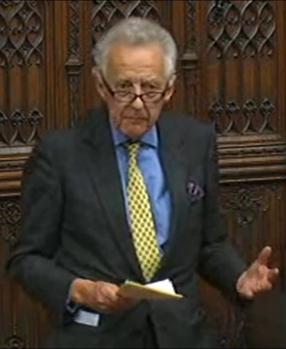Hugh Mackay, 14th Lord Reay facts for kids
Quick facts for kids
The Lord Reay
|
|
|---|---|
 |
|
| Parliamentary Under-Secretary of State for Trade and Industry | |
| In office 22 May 1991 – 14 April 1992 |
|
| Monarch | Elizabeth II |
| Prime Minister | John Major |
| Preceded by | Post vacant |
| Succeeded by | The Baroness Denton of Wakefield |
| Lord-in-waiting Government Whip |
|
| In office 24 July 1989 – 21 May 1991 |
|
| Monarch | Elizabeth II |
| Prime Minister | Margaret Thatcher |
| Preceded by | The Earl of Arran |
| Succeeded by | The Earl Howe |
| Member of the European Parliament | |
| In office 1 January 1973 – 16 July 1979 |
|
| Constituency | Appointed by Parliament |
| Member of the House of Lords | |
| as a hereditary peer 9 August 1964 – 11 November 1999 |
|
| Preceded by | The 13th Lord Reay |
| Succeeded by | Seat abolished |
| as an elected hereditary peer 11 November 1999 – 10 May 2013 |
|
| Election | 1999 |
| Preceded by | Seat established |
| Succeeded by | The 5th Baron Borwick |
| Personal details | |
| Born |
Hugh William Mackay
19 July 1937 |
| Died | 10 May 2013 (aged 75) |
| Political party | Crossbencher (1963–1966); Liberal (1966–1971); Crossbencher (1971–1972); Conservative (1972–2013) |
| Relations | See Clan Mackay |
| Alma mater | Eton College Christ Church, Oxford |
Hugh William Mackay, 14th Lord Reay (born July 19, 1937, died May 10, 2013) was a British politician. He was a member of the Conservative Party and served in the House of Lords.
He was known for being one of the few hereditary peers who could still sit in the House of Lords after a big change in 1999. This change removed the automatic right for most hereditary peers to be in the House of Lords.
About Lord Reay
Hugh William Mackay was the only son of Aeneas Alexander Mackay, who was the 13th Lord Reay. He went to two famous schools: Eton College and Christ Church, Oxford University.
When his father passed away in 1963, Hugh became the 14th Lord Reay. This meant he took his seat in the House of Lords.
His Political Journey
Lord Reay started his time in the House of Lords as a cross-bencher. This means he didn't belong to a specific political party. Later, he joined the Liberal Party. From 1972 onwards, he was a member of the Conservative Party.
He cared about different issues, from ending the death penalty to controlling where wind farms could be built.
From 1973 to 1979, he was a Member of the European Parliament. This was before people started directly voting for these members. He also represented the UK at the Council of Europe. During this time, he lived in the Netherlands on his family's estates.
In 1989, Margaret Thatcher, who was the Prime Minister, appointed him as a whip in the House of Lords. A whip's job is to make sure members of their party vote in a certain way.
Later, in 1991, Prime Minister John Major moved him to a role in the Department of Trade and Industry. He left the government after the 1992 general election.
Changes in the House of Lords
In 1999, a new law called the House of Lords Act 1999 changed things a lot. Most hereditary peers lost their automatic right to sit in the House of Lords. However, Lord Reay was one of 92 hereditary peers who were elected to stay. He remained a member until he passed away in 2013.
Lord Reay was also the traditional leader, or Clan Chief, of Clan Mackay. He was also known as the Lord of Ophemert and Zennewijnen in the Netherlands.
Family Life
Lord Reay was married two times. With his first wife, Annabel Terese Fraser, he had two sons and one daughter. With his second wife, Victoria Isabella, he had two daughters.
His oldest son, Aeneas Mackay, became the 15th Lord Reay after his father's passing. Aeneas is a banker and has a son named Alexander Shimi Markus Mackay.
Links
- Profile , mapsstatsandpolitics.talktalk.net; accessed 26 March 2016.
- Profile, thepeerage.com; accessed 26 March 2016.
 | Emma Amos |
 | Edward Mitchell Bannister |
 | Larry D. Alexander |
 | Ernie Barnes |

